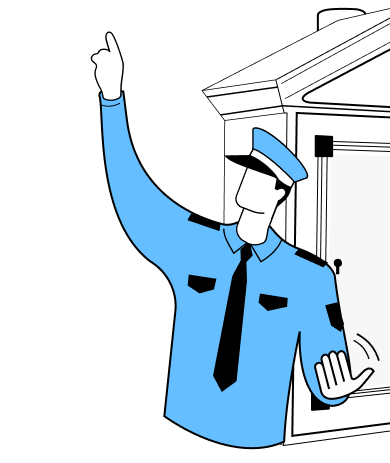Respect Your Authority
When you were growing up, you were probably advised on multiple occasions to respect your elders or to respect authority. It didn’t matter if your elders were related to you or if the authority in question was a teacher, a police officer, or a doctor.
Generally speaking, that was good advice then and still is today. It is, however, heavily contingent on exactly how much respect the elder or authority deserves, and it is on this aspect that I would like to focus.
In my opinion, respect is something that you earn. In order to earn it, you must prove worthy of it. And, to do that, you must have a respect for the authority you have.
How often have you come across someone in your adult life who is using their title, position, or place in society as an excuse to boss you around or a reason to waste your time?
Have you ever approached your manager with a question or an idea, only to be met with a rude or dismissive response?
Have you ever had an unpleasant experience at a governmental agency, perhaps the DMV, that involved long waits, massive inefficiency, and a poorly behaved representative who attempted to make you feel foolish for inadvertently being in the wrong line or for needing a certain document that you didn’t think you needed for the simple task you were trying to achieve?
I am going to guess that your answers are, in order, more times than I can count, yes, and absolutely. Each of these examples, of course, represent a situation involving a person or persons who did not respect their authority and if they were not respecting their own authority, they certainly were not earning yours. What a waste.
When someone views a certain title or position from a power perspective, whatever power is perceived to be attained in that role is easily corrupted. I don’t necessarily mean corrupted in the sense of something illicit or illegal. I am talking about the type of corruption that impairs the functionality and purpose of the role, somewhat akin to the way a technical bug corrupts a computer file.
Authority is not correlative to telling people what to do or, worse, making them feel bad because they may not know as much about your area of expertise as you do
Achieving a position of authority is a privilege and should be treated as such. Reaching an age and a level of experience and wisdom that others can learn from is something to appreciate and share. When you respect your own authority, it is the first step in earning the respect of those around you.
If you are fortunate enough to achieve a position of authority, you owe it to yourself to work each day to be deserving of that position and there are many ways that you can demonstrate your respect for it.
The first and most important is to set a goal of being the very best you can be in your role. Working hard is part of it but getting educated on best practices and new techniques is a bigger part of it. If you demonstrate that you are capable and knowledgeable, you will be more likely to earn the respect of those around you.
Using your authority to collaborate and build consensus is also a clear indication that you respect yourself and others. In so doing, you will find that encouraging people to do what they need to do for themselves is infinitely more rewarding than making them do something for the sake of it.
When you teach and coach, you can extend your influence in a much more meaningful way than when you demand and cajole.
In my professional capacity, I am fond of saying, “If you have a question, please ask it. If you have something to say, please say it, and if you have an idea, please share it.” Saying that is fine, but if I don’t pair that saying with a clear willingness to listen, provide answers, and to act when applicable, then I’m not really doing anything to encourage expression and collaboration. I’m just talking.
If someone respects you enough to seek your advice or assistance, respect yourself enough to deserve their attention.
Scott Arney
Chief Executive Officer
Chicago Patrolmen’s Federal Credit Union






